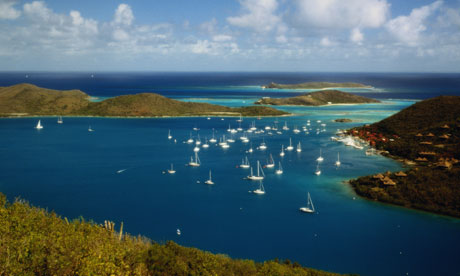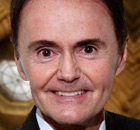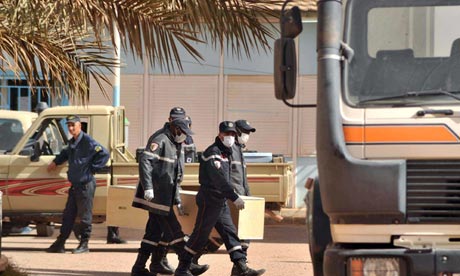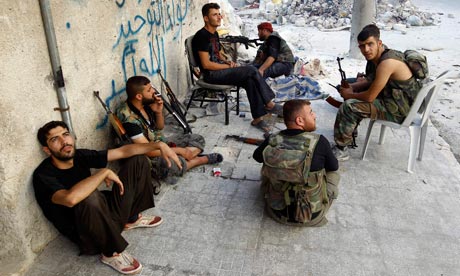To return to prosperity, these countries clearly need a depreciation of what economists call the real exchange rate; that is, the level of their prices and costs compared to other countries’, as translated through the exchange rate ruling between their currencies. Clearly, the financial and economic aspects of the crisis are closely intertwined.
For countries afflicted by the twin problems of excessive debt and uncompetitiveness, leaving the euro and letting their new currency fall potentially offers not just a feasible but even an attractive way out. If successful, it would help support an economic recovery through increased net exports, while not increasing the burden of debt as a share of GDP through domestic deflation.
Indeed, the higher inflation unleashed by devaluation would reduce real interest rates and thereby tend to boost spending. Moreover, outside the euro there would be some scope to operate a policy of quantitative easing. This might also help to boost domestic demand. If the troubled peripheral eurozone economies were able successfully to deploy this adjustment mechanism, then they would not only improve their own GDP outlook, but also help to allay concerns about the long-term sustainability of their debt situation and, thus, bolster the long-term stability of the “core” countries, too.
From a purely economic standpoint, the optimal reconfiguration of the eurozone would probably be the retention of a core northern eurozone centred on Germany, in which it seems clear that Austria, the Netherlands, and Luxembourg could remain. Finland and Belgium could also fit in tolerably well.
Perhaps the most intriguing issue is the potential position of France. It has been Germany’s close economic ally and partner, but France’s recent economic and fiscal performance has in some ways more closely resembled that of the peripheral economies. It has a current account deficit as opposed to Germany’s surplus and its primary budget deficit is close to that of Greece. It also has strong banking and financial links to Greece and the other peripheral economies.
Given these points, there would be a strong economic case for France to stay out of a northern euro. Indeed, there would be attractions for it in joining – and indeed leading – a southern euro, if one existed, or, more informally, a grouping of former euro members. A French-led bloc of former euro members would split the eurozone into two roughly equal parts, with the southern bloc slightly larger. Yet this would amount to a complete overturning of post-war French economic and political strategy. I suspect the French establishment would choose to stick with Germany without even thinking about it. If so, France could end up paying a heavy price.
The question is, could a break- up of the euro be achieved? There does not appear to be any insurmountable legal barrier to a country leaving the euro and remaining within the EU, even without the prior agreement of other member states.
A bigger issue is the legal status of any new currency and its impact on contracts specified in euros. While this threatens to be a legal nightmare, there is a way forward. In what follows, to keep matters simple, I assume that Greece is the first to leave, and that its new currency is called the drachma. But when I refer to Greece this should be taken as shorthand for any, or all, of the peripheral countries.
The principle of “Lex Monetae” states that everything that governs the currency of a country can legally be determined by the national government concerned. Major legal problems arise, however, because the euro is both the national currency of Greece, for now at least, and the common international currency of the EU as a whole. Hence, there may be uncertainty whether any reference to the euro in a contract should be interpreted as the national currency of Greece at the time payment is due, and hence the new drachma, or the common international currency of the EU as a whole, in which case it would remain the euro.
As it happens, most sovereign debt is issued under local laws. In this case, an exiting government could simply redenominate its debt into the new currency at the official conversion rate, applying Lex Monetae.
At the point of departure, the Greek government would need to declare a conversion rate from euros into drachmas. What should it be? I suggest the new currency should be introduced at parity with the euro. Where an item used to sell at €1.35, it would now simply sell at 1.35 drachmas. This would promote acceptance and understanding throughout the economy.
In the run-up to exit, controls would be required to prevent capital flight and a banking collapse in Greece – this is not some hypothetical problem. Greece and Ireland are already seeing huge contractions in their money supply as a result of deposit withdrawals. Accordingly – and in particular, from the announcement of the redenomination until banks were able to distinguish between euro and drachma withdrawals – banks and cash machines would need to be shut down.
Because euro exit and depreciation would bring considerable economic gains, which would both reduce deficits (and therefore the rate of growth of debt) and increase GDP, the scale of any implicit and explicit default following a euro exit is likely to be smaller than if the country had stayed in the euro.
After leaving the eurozone, it is inevitable, and necessary, that the new currency fall sharply to restore the competitiveness that has been lost over the past decade or more. Greece and Portugal require a depreciation of their real exchange rate of about 40pc, Italy and Spain about 30pc and Ireland about 15pc.
It is likely that the exchange rate depreciation would raise the price level by about 15pc in Portugal, 13pc in Greece, and 10pc in Italy, Spain, and Ireland.
Assuming that this adjustment takes place over a two-year period, the effect would be to raise the annual inflation rate by about 7pc per year in Greece, about 6pc in Portugal, and 5pc in Italy, Spain, and Ireland. The historical experience from Argentina in 2002 and Iceland in 2008 is that inflation is then likely to fall back sharply. Of course it needs to, if any real depreciation is to be secured from the large nominal depreciations.
A key determinant of the degree of impact of a eurozone exit on those countries remaining within the currency union would be the extent of “contagion effects”. These might result from the direct adverse economic and financial effects of an exit, but also from the increased perception that other countries might leave the euro. Accordingly, decisive measures to limit such effects would be vital.
The first and most immediate would probably be substantial measures to support the banks of the remaining members, to prevent bank runs in the potentially exiting countries. This would probably involve large injections of liquidity by the ECB. There would also need to be a substantial increase in the firepower of the bail-out funds, probably supplemented by additional support from international organisations such as the IMF.
It seems likely that the remainder of the eurozone would need to take much more decisive steps toward some form of economic and political union. This might involve the implementation of commonly issued eurozone-wide bonds – “eurobonds” – which would effectively allow the troubled peripheral economies to borrow at something close to the eurozone’s average interest rate. However, more direct forms of fiscal transfers from the core economies to the periphery might also be needed.
Suppose that Greece made a success of its euro exit, with growth surging and unemployment falling. It would then surely be impossible for politicians in the peripheral countries to argue that there was no alternative to never-ending austerity within the euro. Parties advocating euro exit would gain in popularity and the market would react by pushing up peripheral countries’ bond yields. At that point, contagion from Greece’s exit could well prompt the departure of other countries.
If any country leaves the euro there are bound to be winners and losers. For Greece, devaluation and default would produce two sorts of loser: those whose capital is reduced by redenomination or default, and those whose real incomes are reduced by the higher inflation unleashed by the devaluation. The most important beneficiaries of all would be currently unemployed Greek workers. Their gains consist of the prospect of future income, in contrast to a presumed near-zero income if the present path continues.
The break-up of the euro would be an event of such political and economic import that everyone, including financial markets, should be awed by it. And the immediate results could be truly awful, involving banking collapses and heaven knows what. However, I suspect that both businesses and the authorities are much better prepared for the euro’s demise than they were for the Lehmans crisis. Indeed, future historians may come to regard the latter as a lucky break, because it alerted people to the dangers of financial instability and encouraged them to put in place arrangements to deal with the really big crisis that was yet to come.
Moreover, the resolution of the euro crisis promises relief from some of our acute economic pressures. I have highlighted the contrast between deficit and surplus countries. The attitude of the latter seems to have been: “Thank goodness the leak isn’t in our part of the boat.” Yet getting out of the current depression will require the surplus countries to spend more.
The euro has enabled Germany to continue its oversaving, in a way that could never have happened with the deutschmark, which would have risen strongly on the exchanges and thereby counteracted the effects of Germany’s slow growth of costs. The demise of the euro would release us from this straitjacket. The peripheral countries – whose economies are collectively slightly larger than Germany’s – would be able to grow again, and in Germany and the other northern core countries the pressure would be on to boost domestic demand to offset loss of demand caused by lower net exports. In short, the demise of the euro is part of the solution.
The crisis happened as a result of the phenomenal arrogance and incompetence of the European political elites. It is more a failure of government than of markets. However, the mechanism that brought the system to its nemesis was fully in line with the market defects that I analyse in my book. What undermined Spain and Ireland was a purely speculative boom centred on real estate that came straight out of the textbook of financial bubbles; bubbles that modern markets, central banks, regulators, and economists confidently believed no longer existed.
It is the expression of the belief that sheer political will can overcome market forces – and the living proof that it cannot.
So the euro crisis is really another expression of the forces that brought us so close to financial and economic disaster in 2008-09. It is the second shoe to drop. Having played a major role in getting us into this mess, once exchange rates are unshackled and are allowed to do their work, markets can also play a major role in getting us out of it.”














 377 Comments
377 Comments


